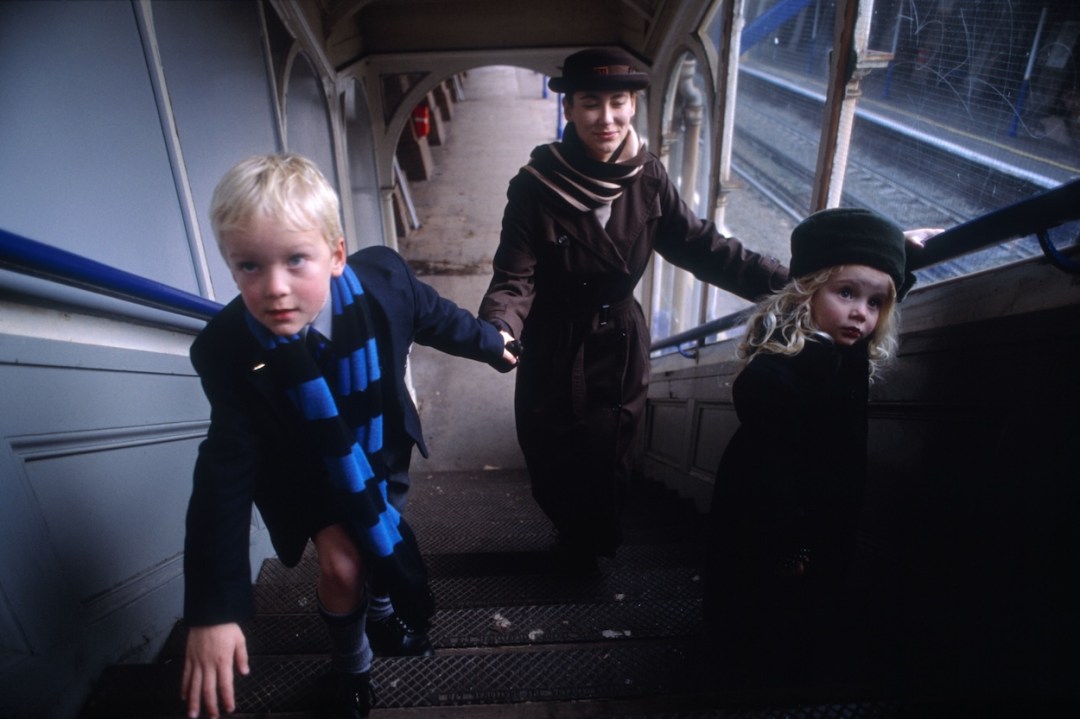‘Always keep a-hold of nurse/ For fear of finding something worse,’ warned Hilaire Belloc in his poem ‘Jim’, about a little boy who ran away and got eaten by a lion. These days, Jim would be lucky to have a nanny at all given their exorbitant cost. Recent figures released by the nanny payroll provider Nannytax show that the average salary in London has risen to more than £50,000 as pushy parents demand ‘additional services’ such as training in autism, attention deficit hyperactivity disorder (ADHD) and special educational needs (SEN). A far cry from Sebastian Flyte’s Nanny Hawkins in Brideshead Revisited, the new breed of ‘hybrid nannies’ can command up to a 20 per cent salary premium by catering to the growing number of families who now require SEN expertise.
Nannies have always divided opinion among mothers, even before the explosion of SEN and ADHD diagnoses. For most, they are a marker of extreme privilege given that they cost around £20 an hour and almost always demand at least a ten-hour day, three to four days a week, before you can even get them to consider working for you. Tell people you have a nanny and their expression will be either one of unbridled ill will or chummy, winking fellowship. Mothers with nannies are either ball-breaking career women who leave at 6 a.m. and get home at 8 p.m., or affluent types with at least three children who need the help but not necessarily because they work. The latter provoke the most rancour among other women but defend their right to help without apology (usually over lunch).
In theory, a good nanny should be more than just a spare pair of hands, but not too much more. They will be another authority figure whom your children will be happy to be entertained, fed and put to bed by, without serious meltdowns on all sides. More than simply staff, the good nanny will be a cross between someone prepared to get the hoover out and a mother’s confidante (see Mary Poppins tacitly acknowledging Mrs Banks’s frustration at her husband and children). Moving discreetly around your house and listening sympathetically to your sleep-deprivation woes, the good nanny will bundle the children into the spare car and take them far from your purview without sending you any WhatsApp voice notes.
A Norland nanny – supposedly the gold nanny standard – trades on all sorts of rarefied English class and Mary Poppins associations. But, as I have heard, Norlanders are no longer within the price bracket of your average London or Home Counties family (the average salary coming in between £40,000 and £50,000 per year). Tales of mothers interviewing Norland nannies usually end with the mother concluding that the Norlander was, in fact, interviewing them. That’s thanks to the clutch of super-rich hedgies and investment bankers prepared to outbid them in terms of salary and luxury accommodation. Despite their reassuring uniform of straw boater and apron, Norlanders are not behind the times: many are now trained in Makaton, ‘a language programme that uses signs and symbols to support children with ADHD’. Good luck getting her to fold your children’s pants and sort some socks is all I can say.
Good luck getting her to fold your children’s pants and sort some socks is all I can say
Somewhere along the way, as modern expectations of childcare have rocketed into the realm of special needs and, frankly, some rather bogus neuroscience, the nanny is clearly no longer a nanny in the way I understand it. The Mary Poppins of P.L. Travers, with her sharp smack of the corrective and the white-gloved hand to check for dust on the mantelpiece, is no more. The modern nanny is a different beast, trained in SEN, gentle at all times and probably an expert nutritionist to boot. For mothers like me who just want a matronly figure to make tomato pasta, hoover under the high chair and take fractious children to the park, we are stuffed. Now with the whip hand, nannies can command exorbitant prices in a sellers’ market, driving out the nannies who entered childcare with ideas that might now seem long outdated: fresh air, stand in the naughty corner, finish what’s on your plate etc.
This week, I bid farewell to our 60-year-old nanny who has been with us (part-time, you understand) for some time. We have certainly had our moments during her tenure: insolent children, parking tickets, trips to minor injuries; I could go on. Crucially, however, we have shared the same understanding of what a nanny should be. I may have come home to objections from the children, but the dishwasher has always rumbled quietly in the kitchen and I have been spared from a full day’s rundown of events. As Belloc has it, I have clung on to her ‘for fear of something worse’. It’s the lions for me now.








Comments